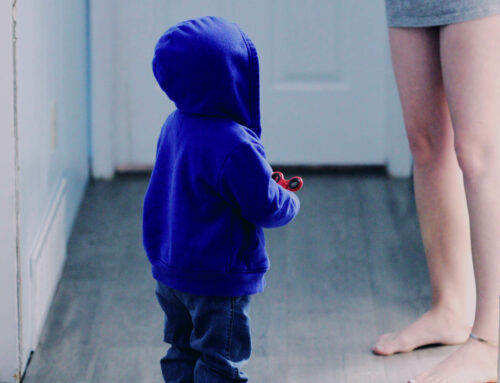“An Exciting Adventure of Loss,” my 14-year-old stepson Miles announced. We looked at him quizzically for a moment, then collapsed into laughter.
We play a lot of board games during our annual Christmas visit to Matt’s family. Last year it was Balderdash, which involves making up definitions for obscure words, summaries for fictional movies, full names for strange acronyms, and historical “events” for random dates. We discovered Miles had a special talent for inventing movie titles.
That night I turned his phrase over in my mind. None of us had scored many points creating plot lines for the movie, but it struck me that I was living a real one: “Woman marries divorced pastor with a 70-pound Siberian Husky, a personality-disordered ex-wife, and primary custody of their two middle-schoolers. She moves from Nashville to Philadelphia only to realize Huskies routinely eat food off kitchen countertops, sweet 6th graders become sullen teenagers, and ex-wives always get their revenge. Will she transcend the lows of this new life with grace or ruin her 110-year-old house by punching holes in the walls? Stay tuned!”

The year since our marriage had been a series of losses for me. Some, like changes to my schedule and spending habits, were manageable. Other situations were more difficult; every day or two Matt and I faced an angry email exchange or a call to the police or a devastated child or an unfair accusation. None of this was part of our reality when we married, and I railed against the time and energy and money we sank into these crises. It was not the adventure I had in mind.
Of course, I’d experienced other losses over the years—relationships, jobs, the illusion of control over any of it. Jesus said we would find life by losing it, but he seemed to imply we had a choice about the matter. It felt like most things I cared about were being wrenched from my hands, not laid down voluntarily so I could pick up a cross.
 As we continued to drive home that cold night, my thoughts turned to the “Christmas story,” the real version that never makes the greeting cards. When the curtain lifts, Mary is looking forward to a lifetime with her sweetheart Joseph, decades of babies and hard work and maybe, someday, more than a few denarii to rub together. She is certainly not hoping to get pregnant with Jesus or to someday gasp with sobs as she witnesses his murder. Joseph has different dreams, too, until the big angel-and-light dreams that inform him his plans are no longer the plan and he needs to marry a pregnant girl and spend a couple years running away from Herod.
As we continued to drive home that cold night, my thoughts turned to the “Christmas story,” the real version that never makes the greeting cards. When the curtain lifts, Mary is looking forward to a lifetime with her sweetheart Joseph, decades of babies and hard work and maybe, someday, more than a few denarii to rub together. She is certainly not hoping to get pregnant with Jesus or to someday gasp with sobs as she witnesses his murder. Joseph has different dreams, too, until the big angel-and-light dreams that inform him his plans are no longer the plan and he needs to marry a pregnant girl and spend a couple years running away from Herod.
They weren’t the only ones who faced major plot twists in the stories they’d scripted. There was Moses, who put up with a million whiny Israelites for forty years, or Job, who lost everything although he’d done nothing wrong, and Hannah who prayed patiently and Hosea who married scandalously and Esther who chose bravery and John the Baptist who was beheaded to save a king’s pride. And, of course, there is Jesus, the Man of All Sorrows, who knelt weeping in a garden while his friends slept and his prayers received no answer. I could have simply written “the entire biblical story” as my response to Miles’ movie title during the game.
A few years before a good friend had asked me, “Do you feel entitled to something from God?” I had to admit the answer was yes; I was a “good Christian” who prayed, tithed, fasted, worshiped, and served. But I am no better than Mary, no more deserving than Moses, certainly no more entitled to an easy road than John or Jesus. So on this quiet December night I realized I did not get to choose my losses. I simply got to choose what I would allow God to do with them….and whether I could someday learn to find the adventure exciting.




Leave A Comment